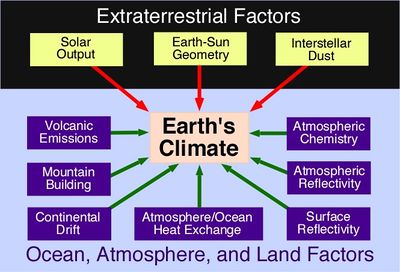Climate change policies (HW4 by Oluwatobi Abayomi Badejo et al)
For guidance about the contents, see page Assessment.
- Put your own username in moderator=Username unless someone else takes care of the page content.
- Add at least category using the [[Category:Name of category]] tag.
- When the page is quite developed, change stub=No
This box of text can removed.
Scope
Question
- What are the multisectoral frameworks for mitigation and adaptation in response to climate change issues in Lagos, Nigeria?
⇤--#: . You should focus the question. What work would you do to answer the question? --Jouni (talk) 18:51, 14 April 2015 (UTC) (type: truth; paradigms: science: attack)←--#: . corrected --Aishat Bukola Ayelotan (talk) 09:44, 20 April 2015 (UTC) (type: truth; paradigms: science: defence)
----#: . If the assessment is based on the Lagos State Climate Change Policy report, what does this assessment actually do? Does it evaluate the policies listed in the report, look at their health impacts, or what? --Jouni (talk) 18:51, 14 April 2015 (UTC) (type: truth; paradigms: science: comment)←--#: . corrected --Aishat Bukola Ayelotan (talk) 09:44, 20 April 2015 (UTC) (type: truth; paradigms: science: defence)
Intended use and users
- Business owners, policy makers and populace can use the information to plan their daily activities in environmentally friendly way. Business owners like industrialists will use the outcomes of the assessment in regulating gaseous emissions and waste disposal, policy makers will use the report in development of enforcement policies and its implementation. The populace will use the information in checking and giving feedbacks to government on impacts of different organisations operation as it affects survival.
----#: . How would these groups use the assessment information? --Jouni (talk) 18:51, 14 April 2015 (UTC) (type: truth; paradigms: science: comment)←--#: . corrected --Aishat Bukola Ayelotan (talk) 09:44, 20 April 2015 (UTC) (type: truth; paradigms: science: defence)
Participants
- Corporate organizations, government agencies, community leaders and populace. All the aforementioned stakeholders have to contribute to the assessment to ensure its acceptibility and effectiveness.
----#: . Are you planning that these groups actually participate in the making of the assessment? --Jouni (talk) 18:51, 14 April 2015 (UTC) (type: truth; paradigms: science: comment)←--#: . corrected --Aishat Bukola Ayelotan (talk) 09:44, 20 April 2015 (UTC) (type: truth; paradigms: science: defence)
----#: . How will these participants contribute? --Anni Hartikainen (talk) 12:37, 14 May 2015 (UTC) (type: truth; paradigms: science: comment)
Boundaries
- The assessment was carried out between 2012-2014(2 years) in Lagos State, South-Western Nigeria with a population of over 20 million people. It is estimated that 3.2 million Nigerians in Lagos state could be displaced from their homes by Sea level rises. Over 2 million of these people live in Greater Lagos and other urban areas. unique features of Lagos State such as a high and rapidly increasing population, the flat topography, extensive coastal areas and a high water table, which in some areas of Lagos Island is less than 0.15 m from the surface, are predisposing factors that further increase the State’s vulnerability to climate change impacts.
----#: . Boundaries is about the boundaries of the assessment, eg. time for which the assessment is done, geographical area that is assessed, impacts that are looked at etc. --Jouni (talk) 18:51, 14 April 2015 (UTC) (type: truth; paradigms: science: comment)←--#: . corrected --Aishat Bukola Ayelotan (talk) 09:44, 20 April 2015 (UTC) (type: truth; paradigms: science: defence)
Decisions and scenarios
- To review the existing landscape of institutions and organizations involved in generation of climate change data, information and knowledge systems requisite for policy making and planning.
- Develop a mechanism for climate change information and knowledge sharing platform to facilitate sharing of climate information and knowledge.
- Develop a climate change education, information and awareness plan.
- Promote social protection programmes for vulnerable communities, households and individuals including women, men, children, youth, physically challenged and others.
----#: . List climate decisions that are actually looked at in the assessment. --Jouni (talk) 18:51, 14 April 2015 (UTC) (type: truth; paradigms: science: comment)←--#: . corrected --Aishat Bukola Ayelotan (talk) 09:44, 20 April 2015 (UTC) (type: truth; paradigms: science: defence)
Timing
The Policy was developed within 2 years and will be reviewed every three years to take into account emerging issues, challenges,and trends on climate change at the local, national, sub-regional, regional and global levels including the dynamic international climate change policy debate.
----#: . Timing gives the estimated schedule when the assessment is actually done. --Jouni (talk) 18:51, 14 April 2015 (UTC) (type: truth; paradigms: science: comment)←--#: . corrected --Aishat Bukola Ayelotan (talk) 09:44, 20 April 2015 (UTC) (type: truth; paradigms: science: defence)
----#: . When will the different participants be able to take part? --Anni Hartikainen (talk) 13:15, 14 May 2015 (UTC) (type: truth; paradigms: science: comment)
Answer
- The policy established a state climate change governance frame work to coordinate and harmonize implementation of state level climate change activities.
- Priority adaptation action areas were mapped out.
----#: . What possible actions might the answer include? --Anni Hartikainen (talk) 12:38, 14 May 2015 (UTC) (type: truth; paradigms: science: comment)
- Priority mitigation areas were mapped out taking into account that poverty and economic development are the overriding priorities of the state to prevent populace from engaging in environmental degrading activities that can lead to climate change.
Results
- Diversification of economies to reduce over dependence on climate-sensitive sectors and occupations.
- Development of social protection as a tool for adaptation to climate change and risk reduction.
Conclusions
- Adaptation and mitigation procedure as described in the policy is achievable and consistent with the realities of the Nigerian community due to the economic status of majority of people.
Rationale
 activities resulting in climate change
activities resulting in climate change
Stakeholders
- Corporate organizations, government agencies, community leaders and populace.
⇤--#: . What are their interests and goals? --Anni Hartikainen (talk) 12:39, 14 May 2015 (UTC) (type: truth; paradigms: science: attack)